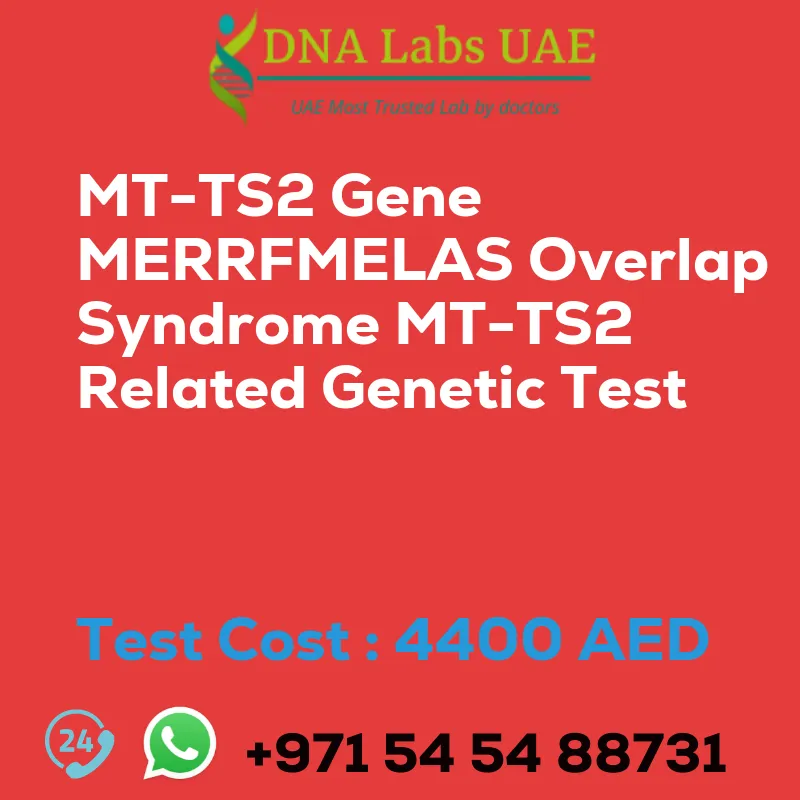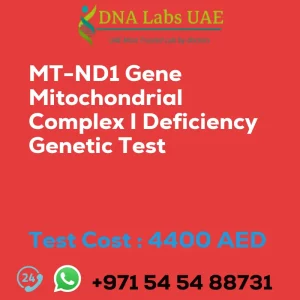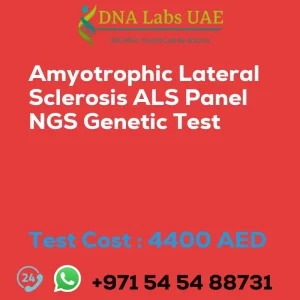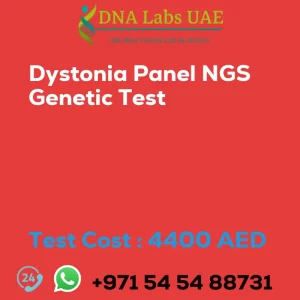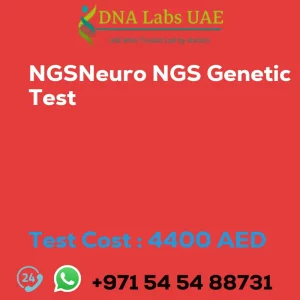MT-TS2 Gene MERRFMELAS Overlap Syndrome MT-TS2 Related Genetic Test
Components
Price: 4400.0 AED
Sample Condition
Blood or Extracted DNA or One drop Blood on FTA Card
Report Delivery
3 to 4 Weeks
Method
NGS Technology
Test Type
Neurological Disorders
Doctor
Neurologist
Test Department
Genetics
Pre Test Information
Clinical History of Patient who is going for MT-TS2 Gene MERRF/MELAS overlap syndrome, MT-TS2 related NGS Genetic DNA Test. A Genetic Counselling session to draw a pedigree chart of family members affected with MT-TS2 Gene MERRF/MELAS overlap syndrome, MT-TS2 related.
Test Details
The MT-TS2 gene is a gene associated with mitochondrial diseases, specifically the MERRF/MELAS overlap syndrome. This syndrome is characterized by a combination of symptoms seen in both MERRF (Myoclonic Epilepsy with Ragged Red Fibers) and MELAS (Mitochondrial Encephalomyopathy, Lactic Acidosis, and Stroke-like episodes) syndromes.
To diagnose this syndrome, a genetic test called Next-Generation Sequencing (NGS) can be performed. NGS is a high-throughput sequencing method that allows for the analysis of multiple genes simultaneously. In the case of the MT-TS2 gene, NGS can identify any variations or mutations in the gene that may be responsible for the MERRF/MELAS overlap syndrome.
The NGS genetic test involves obtaining a sample of DNA, typically from blood or saliva, from the individual being tested. The DNA is then sequenced using NGS technology, which generates a large amount of sequencing data. This data is then analyzed to identify any variations or mutations in the MT-TS2 gene.
The results of the NGS genetic test can help confirm a diagnosis of the MERRF/MELAS overlap syndrome and provide information about the specific genetic variant(s) involved. This information can be useful for understanding the underlying cause of the syndrome, predicting disease progression, and informing treatment options. It can also be helpful for genetic counseling and family planning purposes.
It is important to note that the MT-TS2 gene is just one of many genes associated with mitochondrial diseases, and there may be other genes involved in the MERRF/MELAS overlap syndrome. Therefore, a comprehensive mitochondrial genetic panel or whole exome sequencing may be recommended to identify potential variations in other genes as well.
| Test Name | MT-TS2 Gene MERRFMELAS overlap syndrome MT-TS2 related Genetic Test |
|---|---|
| Components | |
| Price | 4400.0 AED |
| Sample Condition | Blood or Extracted DNA or One drop Blood on FTA Card o |
| Report Delivery | 3 to 4 Weeks |
| Method | NGS Technology |
| Test type | Neurological Disorders |
| Doctor | Neurologist |
| Test Department: | Genetics |
| Pre Test Information | Clinical History of Patient who is going for MT-TS2 Gene MERRF/MELAS overlap syndrome, MT-TS2 related NGS Genetic DNA Test A Genetic Counselling session to draw a pedigree chart of family members affected with MT-TS2 Gene MERRF/MELAS overlap syndrome, MT-TS2 related |
| Test Details |
The MT-TS2 gene is a gene associated with mitochondrial diseases, specifically the MERRF/MELAS overlap syndrome. This syndrome is characterized by a combination of symptoms seen in both MERRF (Myoclonic Epilepsy with Ragged Red Fibers) and MELAS (Mitochondrial Encephalomyopathy, Lactic Acidosis, and Stroke-like episodes) syndromes. To diagnose this syndrome, a genetic test called Next-Generation Sequencing (NGS) can be performed. NGS is a high-throughput sequencing method that allows for the analysis of multiple genes simultaneously. In the case of the MT-TS2 gene, NGS can identify any variations or mutations in the gene that may be responsible for the MERRF/MELAS overlap syndrome. The NGS genetic test involves obtaining a sample of DNA, typically from blood or saliva, from the individual being tested. The DNA is then sequenced using NGS technology, which generates a large amount of sequencing data. This data is then analyzed to identify any variations or mutations in the MT-TS2 gene. The results of the NGS genetic test can help confirm a diagnosis of the MERRF/MELAS overlap syndrome and provide information about the specific genetic variant(s) involved. This information can be useful for understanding the underlying cause of the syndrome, predicting disease progression, and informing treatment options. It can also be helpful for genetic counseling and family planning purposes. It is important to note that the MT-TS2 gene is just one of many genes associated with mitochondrial diseases, and there may be other genes involved in the MERRF/MELAS overlap syndrome. Therefore, a comprehensive mitochondrial genetic panel or whole exome sequencing may be recommended to identify potential variations in other genes as well. |

